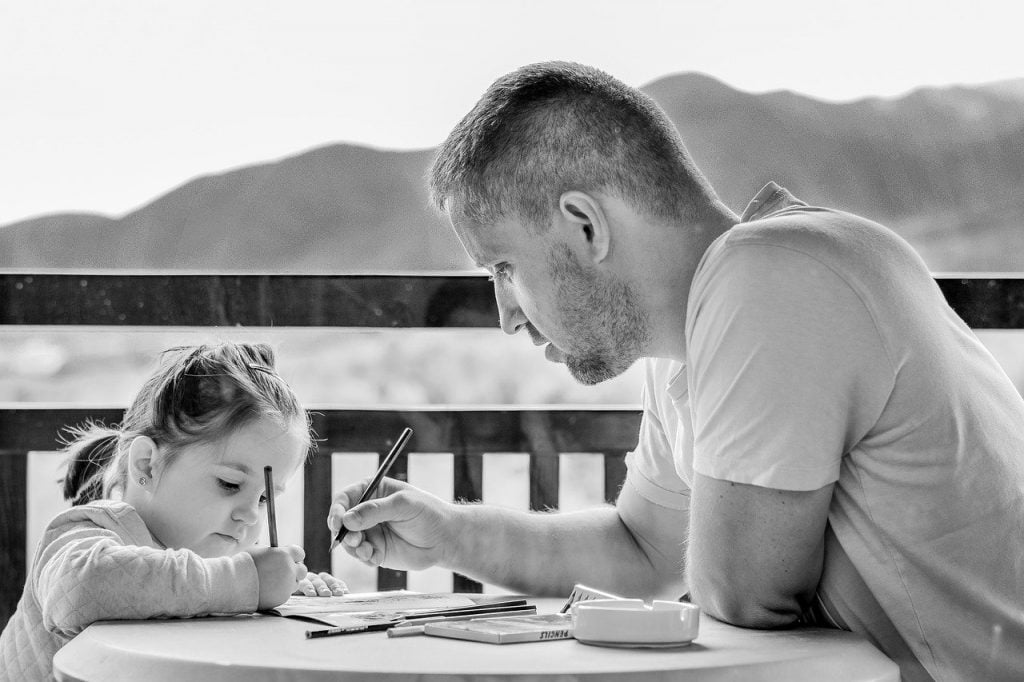Written by Preethi Matthew and originally posted to her blog, Broken Beloved Beautiful. Shared here with permission.

Originally a 5th-century chapel, outside ancient Constantinople, it was transformed in the 14th century with stunning frescoes that reflect the Eastern Church’s view of Christ. Converted into a mosque after 1453, the building’s art remains a quiet witness to Christianity’s deep roots in Turkey. Long before the faith spread West, cities like Ephesus and Antioch carried the gospel and shaped early Christian history.
This photograph reminds us that Jesus walked Eastern streets and that His story belongs here.
Seeing Christ through my Eastern eyes
Growing up in India, I was often told that Christianity was a Western religion. It was presented as something foreign. Was it not a cultural import brought in by missionaries, shaped by the West, and worn like an ill-fitting garment over our Eastern lives? Although I was born and brought up in a traditional Christian home, when I became a believer, I felt the tension. Could something so Western really speak to a heart shaped by Eastern culture of shame, family loyalty and silence? There was always this dissonance of adapting my eastern culture to this western “religion” and its teachings.
Then I moved West, to the United Kingdom. The country that had sent out missionaries to convert the eastern heathens. But, in the past two decades that I have called the UK, home, I have watched the West wrestle to adapt the Bible to its own postmodern, individualistic world. Words like “honour,” “authority,” “purity,” and “submission” felt abrasive and even outdated. The Gospel was trimmed to fit personal preferences and polished into palatable sermons for a self-made world. And yet, I found myself unsettled and not because the Bible didn’t fit the West, but because I was finally seeing that it wasn’t Western at all.
The more I studied the Scriptures, the more I saw my world in it. The ancient world of the Bible breathed with the same, familiar codes of family honour, collective shame, systems that protect the powerful and silence the suffering. And not just in its setting, but in its tone, its family structures, its generational griefs, and its understanding of honour, shame and belonging.
Far from feeling foreign, it spoke directly into the deepest wounds that I had normalized all my life. It speaks into my world. The world where daughters bear the weight of their parents’ reputation, where women are expected to preserve peace by becoming invisible, where community loyalty trumps truth, and where silence is mistaken for virtue.
I was often told to read the Bible cautiously and not to get too westernized by its ideas. But imagine my shock when I realized that Jesus wasn’t telling me to westernize myself, nor to betray my eastern roots. And that He calls me by name, in my language, in my loss and in my longing to be seen and to be heard.
What follows here, is not theology for debate. These are the quiet tensions between ancient text and lifelong pain. These are the places where Jesus dismantled not just the systems around me but the lies within me.
I was taught that loyalty to family was everything. Even if I was hurt, I must never bring shame. My duty was to preserve the name, hide the cracks and take the blame. But Jesus once asked,
“Who is my mother, and who are my brothers?” Then pointing to His disciples, He said, “Here are my mother and my brothers. For whoever does the will of my Father in heaven is my brother and sister and mother” Matthew 12:48–50.
That shattered something in me, but in a good way. Because, in Him, I am no longer the daughter who brings dishonor. I was adopted and chosen and valued. I am the daughter of the King.
As a young girl I was praised when I was quiet, useful and compliant. I was trained to take up as little space as possible. But when a woman broke open a jar of perfume in a room full of men, Jesus did not scold her.
He said, “Leave her alone. Why are you bothering her? She has done a beautiful thing to me” Mark 14:6
He called her act of devotion, beautiful. He welcomed women to sit, to speak and to be. He saw their worth not in what they could do, but in who they were.
My womanhood had always been policed. My body is a threat of potential shame. My voice was a barometer of my character. I was told purity equaled silence and good behaviour. But Jesus turned to the bleeding woman who reached for Him and said,
“Daughter, your faith has healed you. Go in peace and be freed from your suffering” Mark 5:34.
He didn’t call her dirty. He called her, daughter. He did not turn away from her hidden shame. In fact, He healed it. And then publicly declared what he had done.
I was told that my silence was strength and obedience. But Jesus talked to and listened to a Samaritan woman at the well. And then gave her a voice.
“Many of the Samaritans from that town believed in him because of the woman’s testimony, ‘He told me everything I ever did’” John 4:39.
He gave a platform to the silenced, not because they were desperate feminists but because he knew the pain of being silenced.
I was raised to perform my worth. Through service, hosting, cooking and it all had to be done to perfection. I thought love was earned by labour. But Jesus didn’t scold Mary for sitting at His feet. He said,
“Mary has chosen what is better, and it will not be taken away from her” Luke 10:42.
He didn’t measure Martha’s worth by her work. Maybe Jesus also called me to be, not just to do.
In my world, power protects power. Systems protect those who do the hurting, and not the hurt. Titles crush the weak. But Jesus had a different response.
“They tie up heavy, cumbersome loads and put them on other people’s shoulders, but they themselves are not willing to lift a finger to move them” Matthew 23:4.
He flipped tables. He named hypocrisy. He didn’t just comfort the oppressed. He protected them.
I grew up watching men inherit legacies while women were excluded, dismissed or silenced. But Scripture says,
“If you belong to Christ, then you are Abraham’s seed, and heirs according to the promise” Galatians 3:29.
And when I failed to perform, I felt like I had failed my faith and my upbringing. That grief, pain or longing meant weakness. But Jesus said,
“Come to me, all you who are weary and burdened, and I will give you rest” Matthew 11:28.
In Christ, I am not an afterthought. I am not a second-class citizen. I am an heir. I am named, included and sealed with promises.
He did not demand perfection. He offered peace. And rest, for the weary. Jesus offered grace for me because I am undone.
An Invitation to the woman with an Eastern heart
In the West, the Gospel is often discussed in terms of justice, choice and autonomy. But in my world, the deepest longing is not freedom.
It is actually dignity. It is respect.
A place to belong without shame. A love that does not collapse under obligation. A God who sees and stays. I had already found early on that Jesus is that, Saviour. But today I realized that He had not come to modernize the East or Westernize the Bible. He came to reveal the Father and He chose to come into a world that looked so much like mine.
So, if you are like me and are shaped by a shame-based culture, silenced by systems that called your pain dishonor, please don’t hold back from Jesus because you think He is foreign to your story.
He is not a Western Savior imported to civilize the East. He is the Eastern Son who stepped into patriarchal power structures, family obligation, gendered shame, and religious hypocrisy and turned them upside down with tenderness and truth.
He understands the weight of obedience, the fear of dishonouring family, the longing to be chosen not for usefulness, but for love. He knows your world. He has already entered it.
So, come. Not cautiously, not apologetically but completely. He did come, especially, looking for you.
Jesus answered, “Everyone who drinks this water will be thirsty again, but whoever drinks the water I give them will never thirst. Indeed, the water I give them will become in them a spring of water welling up to eternal life.” John 7:37-38





